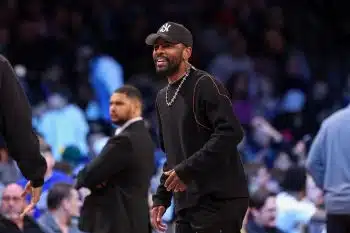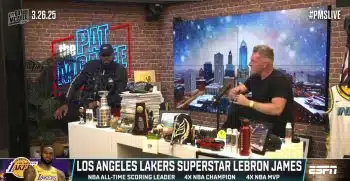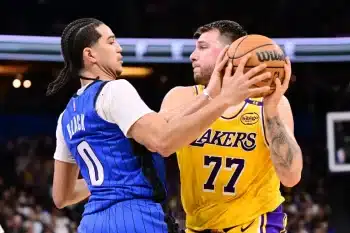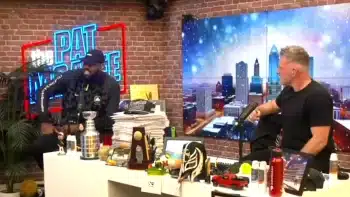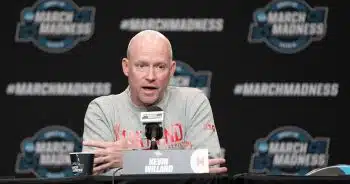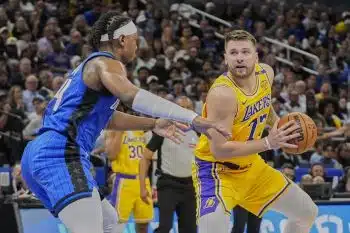NBA
‘DeAndre Jordan Rule’ May Benefit Restricted Players
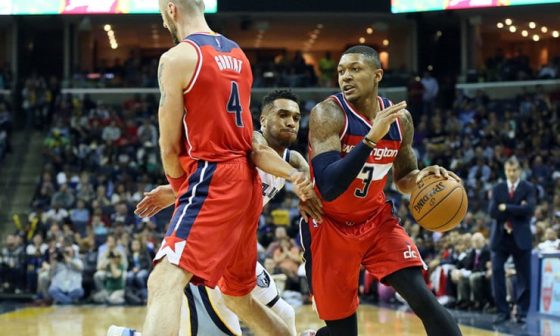
As initially reported by Adrian Wojnarowski of The Vertical, the NBA and the NBA Players Association agreed to reduce the league’s moratorium to the first six days of July.
The change may have been inspired by DeAndre Jordan’s free-agent flip-flop, that saw the center renege on a verbal deal with the Dallas Mavericks, only to rejoin the Clippers in a stunning reversal — but it’s the summer’s crop of restricted free agents that may benefit most from the rule change.
The league’s year comes to a close at the end of June, suspending activity through the annual moratorium, while accountants run through the previous season’s numbers to set the salary cap for the upcoming campaign.
Last summer’s moratorium ran through July 8, but this year’s pause was originally scheduled through the 11th, with free agency beginning on July 12.
While teams can still sign draft picks, minimum players and make a few specific moves, most transactions are prohibited through the moratorium, including trades. Technically, even verbal agreements aren’t allowed — though they are commonplace as early as July 1.
In theory, Jordan couldn’t renege on a deal that was never reached, but try telling that to the Mavericks.
The reduction may reduce the potential waffling time of such a non-binding, verbal agreement, but the Jordan reversal was an oddity. It wasn’t the first time and won’t be the last — but it was an unusual circumstance.
It’s players like Bradley Beal (Washington Wizards), Andre Drummond (Detroit Pistons), Harrison Barnes (Golden State Warriors) and Jordan Clarkson (Los Angeles Lakers) who may learn their fates a bit earlier with the abbreviated moratorium.
Each will be restricted this summer, which enables their existing teams the right of first refusal for three full days, to decide if they want to match a signed offer sheet issued by a competing franchise.
While two days isn’t an especially long time, chasing restricted free agents could be a problematic venture, as I detailed in January.
A team can verbally agree to give a player like Beal an offer sheet on July 1, but under the original moratorium schedule, wouldn’t be able to actually initiate a deal until July 12. Add in the 48-hour decision period, and such a commitment would tie up cap space for two full weeks.
All that, and the original team can match; meanwhile all the best unrestricted free agents are coming off the board.
At least with the shortened moratorium, the offer sheet process can be started on July 7. Teams are still more likely to pursue unrestricted players first, but cutting out five days should help give earlier closure to the restricted candidates.
Other potential restricted free agents include Jared Sullinger and Tyler Zeller (Boston Celtics), Matthew Dellavedova (Cleveland Cavaliers), Festus Ezeli (Warriors), Donatas Motiejūnas and Terrence Jones (Houston Rockets), Tyler Johnson (Miami HEAT), Miles Plumlee (Milwaukee Bucks), Langston Galloway (New York Knicks), Dion Waiters (Oklahoma City Thunder), Evan Fournier (Orlando Magic) and three players on the Portland Trail Blazers (Meyers Leonard, Allen Crabbe and Mo Harkless), among others.
Teams need to issue qualifying offers before the end of June to make players restricted.
The 2016 summer will see the salary cap jump roughly $20 million from this year’s $70 million, giving the majority of the team’s in the league at least one max-salary slot. The list of unrestricted free agents is relatively short. Franchises are going to have the spending power to chase restricted players, even with the (now-briefer) delay.
Another takeaway from the rule change: The league and union were able to come to a consensus — potentially a positive sign with both parties able to opt out of the current Collective Bargaining Agreement before the 2017-18 season.
It remains likely that both sides do choose to end the current deal, which could lead to another lockout and lost games. Still, reaching an early consensus on the moratorium suggests both sides are trying to work together.
The 2011 agreement was overseen by former union director Billy Hunter and then NBA commissioner David Stern. While Commissioner Adam Silver was an active participant in negotiations, the next round will be the first under his tenure. Additionally, Michele Roberts is new at the collective bargaining table as the union’s executive director, replacing Hunter in 2014.
